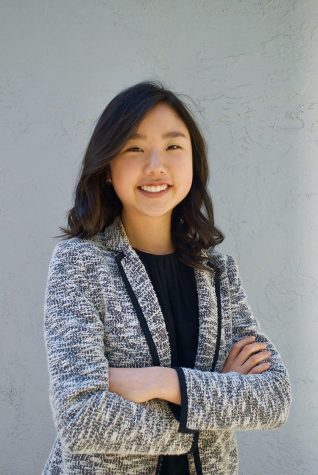Summit Addresses Diversity Issues
May 17, 2018
To discuss social issues of race and sexual orientation, students and faculty members attended the annual diversity summit at Del Valle on April 27.
Junior Lindsay Torres, who also attended the diversity summit last year, said, “All four districts come together… and this summer, we had some Stanley middle school students come too. And basically, we had an open discussion about race and relations and not like in the historical sense. This was real life.”
“The fact that there were Stanley kids this year and we were kind of reaching out to the younger kids also helped spread our message,” said Torres.
Freshman Amia Bonilla, president and founder of the Black Student Union (BSU) club, attended the summit for the first time. “Ms. Pimentel and Mr. Turner wanted me to go and I invited some of the members of my club,” she said.
“I thought the event was really fun and educational. It brings more awareness… Some of the kids there talked about their experiences… about what happens at their different schools,” said Bonilla.
The keynote speaker at the event, Dr. Lori Watson, spoke “about how much race plays a role in her personal life.” For students like Torres, “it was really moving and really empowering.”
Counselor Patrick Turner said, “She [Watson] eloquently broke down race and how it impacts each other not only in the world today but on a smaller level meaning classrooms and with each student interaction.”
After the speeches, students broke off into sessions covering topics ranging from micro-agression to civil rights and LGBTQ+ discrimination.
Turner attended a session titled “The Use of the N-word.”
“It was a great breakout session hosted by the diversity representative, Eric Honda, and two students from Las Lomas. This was an in-depth discussion about why students don’t feel comfortable, either with this word being used in a textbook or friends using this word in their communities,” explained Turner.
Bonilla learned that “you shouldn’t use it.” She explained that she learned that “African American people have grown a relationship with the word which shows how white people can’t use it but black people can, but overall, it’s not a word to be used,” she said.
According to Torres, most of the breakout sessions were hosted by students who attended last year’s event, which was a change. “Last year when I went in the spring, it was actual adults who came and led the discussions,” she said.
Turner said, the breakout sessions “kind of gave [students] a platform to stand up and speak confidently and not feel like ‘I’m the only person experiencing this.'”
“It’s very… eye-opening because for example, I didn’t know there were any students who were undocumented at Campo or anywhere in the district and there are,” said Torres.
Turner said, “My surprise was the growing number of issues and incidents that take place and go unnoticed and nobody’s standing up for the students of color who feel this way.”
“At the end of the day, I felt extremely empowered and educated and I felt like I just got a better sense of other peoples’ perspectives,” Torres said.
Next year, Torres plans on being the diversity commissioner for Campolindo. “I really want to get everyone on campus, if not involved, but just knowledgeable about our diversity efforts, or equity efforts because it’s something that’s really important to me and I think a lot of other students and I think what Dr. Watson does is extremely valuable,” she explained.
